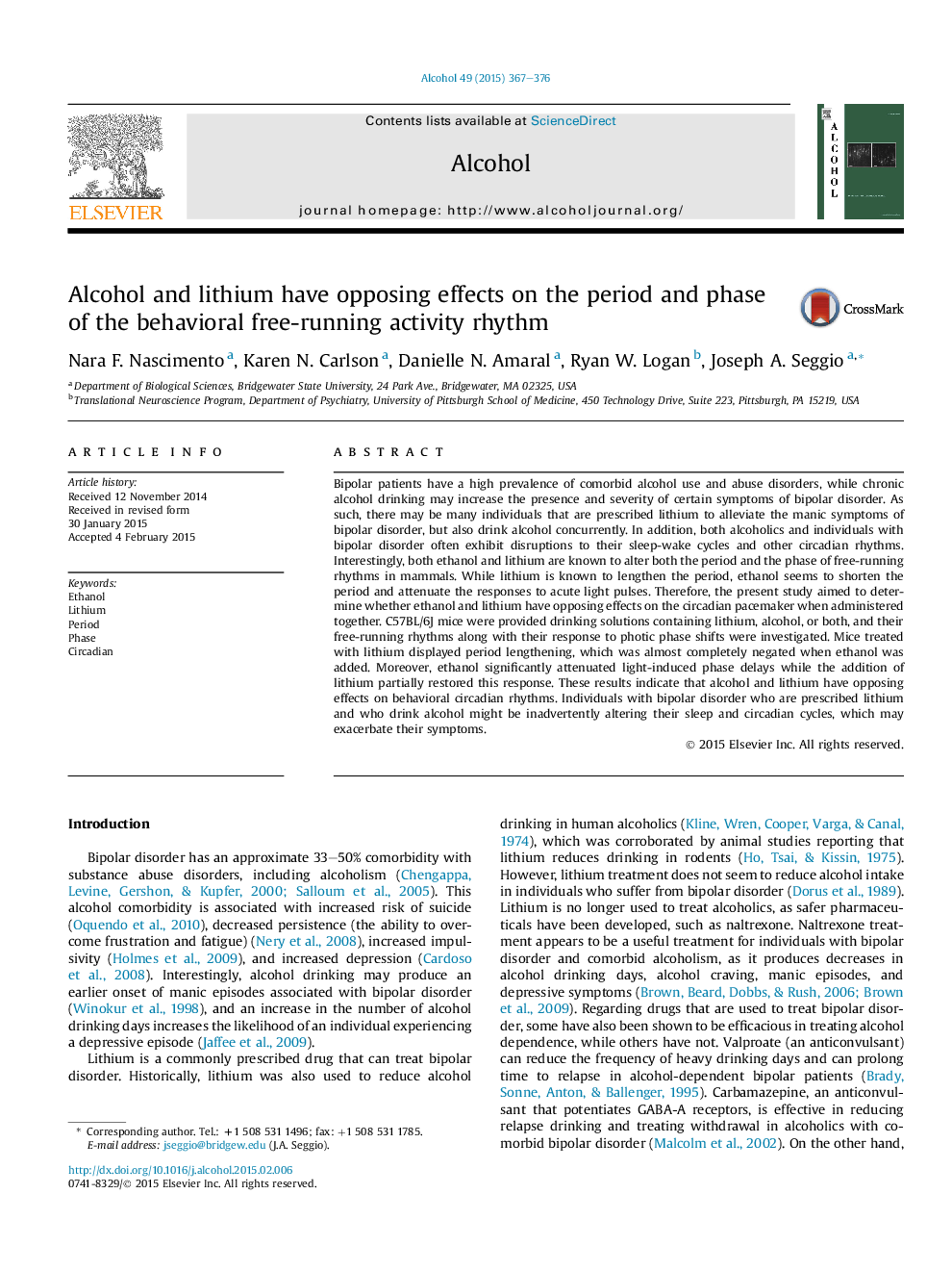| Article ID | Journal | Published Year | Pages | File Type |
|---|---|---|---|---|
| 1066845 | Alcohol | 2015 | 10 Pages |
•Alcohol and lithium consumption is correlated with change in free-running period.•Combined alcohol/lithium produces free-running periods similar to water only.•Alcohol and lithium have opposing effects on the free-running activity period.•Lithium can partially restore alcohol-blocked photic phase shifts.
Bipolar patients have a high prevalence of comorbid alcohol use and abuse disorders, while chronic alcohol drinking may increase the presence and severity of certain symptoms of bipolar disorder. As such, there may be many individuals that are prescribed lithium to alleviate the manic symptoms of bipolar disorder, but also drink alcohol concurrently. In addition, both alcoholics and individuals with bipolar disorder often exhibit disruptions to their sleep-wake cycles and other circadian rhythms. Interestingly, both ethanol and lithium are known to alter both the period and the phase of free-running rhythms in mammals. While lithium is known to lengthen the period, ethanol seems to shorten the period and attenuate the responses to acute light pulses. Therefore, the present study aimed to determine whether ethanol and lithium have opposing effects on the circadian pacemaker when administered together. C57BL/6J mice were provided drinking solutions containing lithium, alcohol, or both, and their free-running rhythms along with their response to photic phase shifts were investigated. Mice treated with lithium displayed period lengthening, which was almost completely negated when ethanol was added. Moreover, ethanol significantly attenuated light-induced phase delays while the addition of lithium partially restored this response. These results indicate that alcohol and lithium have opposing effects on behavioral circadian rhythms. Individuals with bipolar disorder who are prescribed lithium and who drink alcohol might be inadvertently altering their sleep and circadian cycles, which may exacerbate their symptoms.
